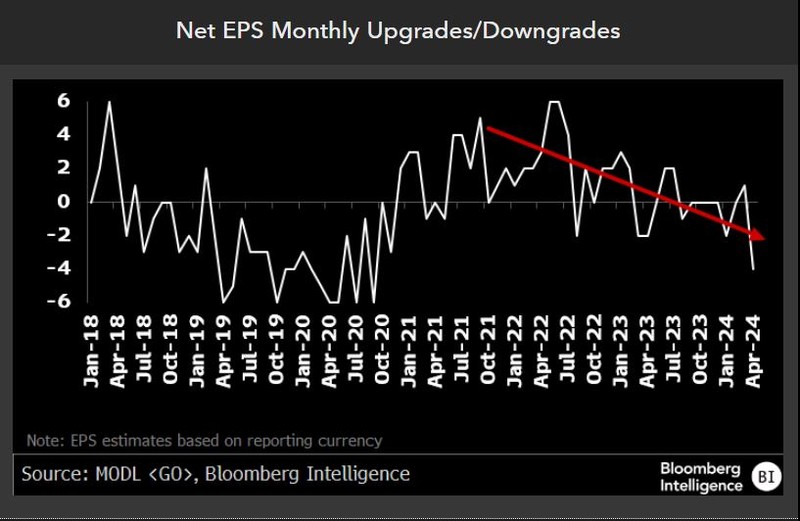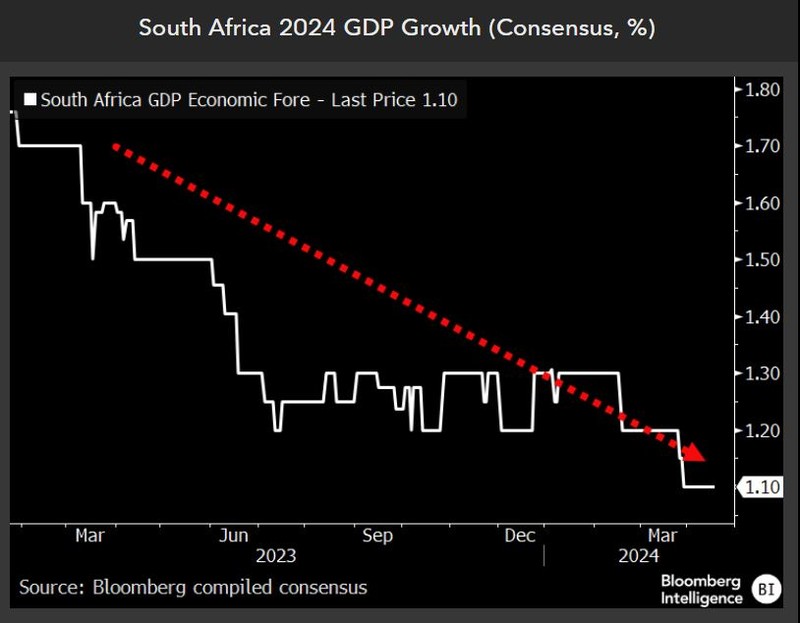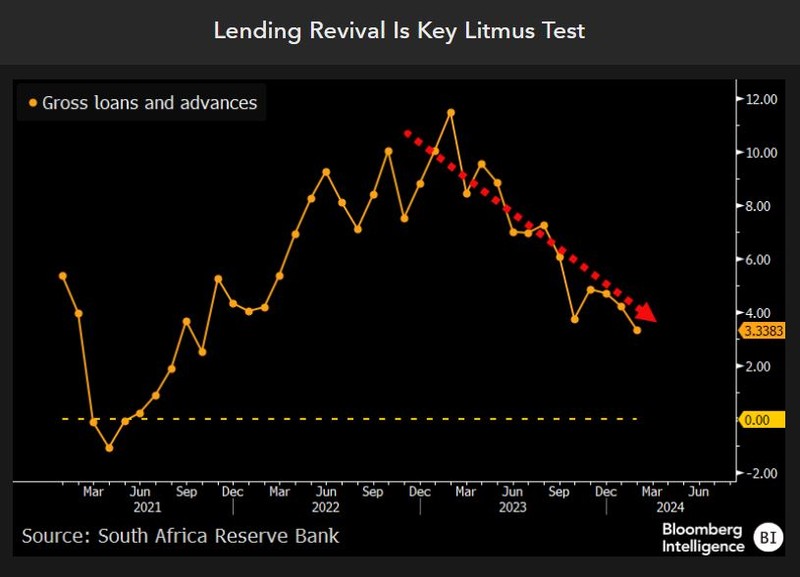The upcoming presidential election could be a turning point in South Africa, with the African National Congress (ANC) potentially losing its majority for the first time since it came to power in 1994. Corruption, poverty, a weak economy and the dismal state of public companies anger the electorate. Opinion polls suggest the ANC’s vote share could fall to 40-50%, forcing the party to enter into a coalition with one or more smaller parties. The risk for local banks from this outcome is likely to be limited.
If the ANC’s share falls so much that it is forced into a coalition with Julius Malema’s far-left Economic Freedom Fighter’s Party, higher taxes, expropriation of white property and even nationalization would become a risk.
EPS estimates are stalled due to the economic slowdown and pressures
Weak economic conditions and rising impairments in 2024 suggest a weak EPS outlook for South Africa’s leading banks, based on consensus, with slight downward revisions possible. We expect the cost of risk to rise from below normal levels for most. The prospect of a rate cut has diminished, providing a balance as market implied interest rates do not point to a cut this year or next from the current 8.25%. This supports lenders’ net interest margins and supports revenue. Together, these factors could lead to net downgrades.
Our basket, which includes the top six South African banks, shows whether EPS estimates have been increased or decreased each month based on the 12-month forward consensus. The net balance per month is between six (all upgrades) and minus six (all downgrades).

Stagnant growth is weighing on the lending outlook
A key drag on local banks, including FirstRand and Standard Bank, from South Africa’s power crisis is a collapse in business confidence and a slowdown in economic growth. Economists have cut estimates for economic growth in 2024 to just 1.1%, compared with the already weak 1.7% expected at the start of last year. Combined with inflation of 5-6%, this means nominal GDP growth of around 7% per year. While banks may be able to tread water with credit growth around this level, political uncertainty surrounding the presidential election is likely to prevail, making it unlikely that banks will achieve higher credit growth.
Longer-term opportunities exist for local lenders as businesses and households invest in renewable energy sources, but coal-based power generation is likely to remain the main source in the short term.

Credit growth remains subdued
Loan growth in South Africa had weakened amid a challenging and deteriorating economic environment, weighing on local banks’ earnings outlook and recently slowing to just 3% from over 10% in early 2023. A weak housing market, political uncertainty ahead of the presidential election, low business confidence and increased unemployment could combine to keep credit growth in a subdued 3-6% range through 2024, which compares with a real inflation rate of 5-6% would mean zero or negative growth.

